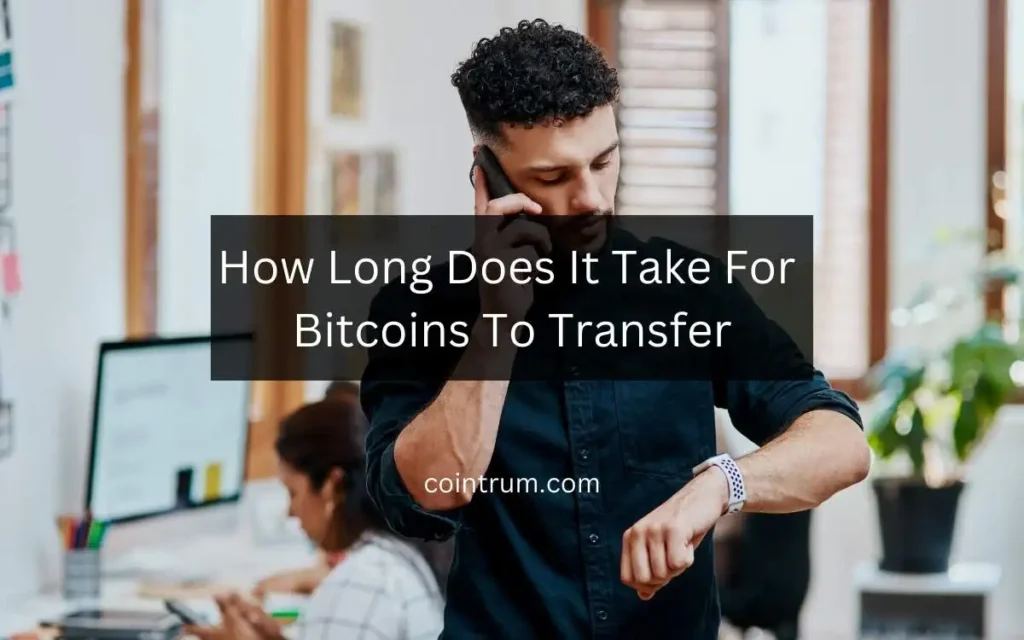
When you transfer Bitcoin, the speed can vary based on several factors. In this article, I’ll guide you through how Bitcoin transactions work and what influences the time it takes to transfer Bitcoin.
Bitcoin’s Transaction Process
Bitcoin operates on a decentralized network called the blockchain. A Bitcoin transaction is verified through mining, where miners validate the transaction by solving complex cryptographic puzzles. Once a puzzle is solved, the transaction is included in a “block” and added to the blockchain.
Typically, a new block is mined every 10 minutes, meaning your transaction will likely take that long to be added to the blockchain. However, there are several factors that can influence this timing.
Factors Affecting Bitcoin Transaction Speed
Here are the key factors that affect how long it takes for Bitcoin to transfer:
- Network Congestion: Just like rush-hour traffic, when more transactions are happening at the same time, it can slow down the process. If there is a backlog, your transaction may take longer.
- Transaction Fees: Bitcoin transactions require a fee to incentivize miners. If you include a higher fee, miners are more likely to prioritize your transaction, reducing the time it takes to confirm.
- Block Confirmation: Each transaction requires 1 to 3 confirmations, and each confirmation can take around 10 minutes. This means a typical Bitcoin transaction could take anywhere between 30 minutes to 1 hour to fully confirm.
Speeding Up Your Transaction
There are ways to speed up Bitcoin transfers if you’re in a hurry:
- Increase Your Transaction Fee: Most Bitcoin wallets allow you to set the transaction fee manually. A higher fee makes it more likely that miners will prioritize your transaction.
- Use SegWit Addresses: SegWit (Segregated Witness) is a protocol upgrade that optimizes transaction data and speeds up the process.
- Consider the Lightning Network: For microtransactions or small payments, you might want to consider the Lightning Network, which is designed for faster Bitcoin transactions. It allows transactions to happen almost instantaneously, without waiting for block confirmations.
Real-Life Example
Let’s say you are sending Bitcoin to a friend on the weekend, when network traffic is lower. If you choose a higher transaction fee, your transaction could be processed and confirmed within 15–30 minutes, even if it normally might take 45 minutes to an hour during peak times.
Bitcoin vs Other Cryptos
While Bitcoin is one of the most well-known cryptocurrencies, its transaction speed is slower compared to other coins like Solana or BNB, which have faster block times. For users looking for faster transactions, these alternatives could be considered.
My Final Words
In general, a Bitcoin transaction can take between 10 minutes to an hour depending on the network’s congestion and the transaction fee. If you need it to be faster, increasing the fee or using a service like the Lightning Network can help. Understanding these variables can save you from the frustration of waiting too long for your Bitcoin to transfer.
FAQs: How Long Does It Take for Bitcoins to Transfer?
-
How long does a Bitcoin transaction usually take?
A typical Bitcoin transaction takes 10 to 30 minutes to be confirmed, but it can take longer during times of network congestion.
-
What factors affect Bitcoin transfer times?
The main factors include network congestion, transaction fees, and the number of confirmations needed. Higher fees and less network traffic usually result in faster transfers.
-
Can I speed up my Bitcoin transaction?
Yes, you can speed up your transaction by increasing the transaction fee. A higher fee incentivizes miners to prioritize your transaction. You can also use SegWit addresses or the Lightning Network for faster processing.
-
How do transaction fees impact Bitcoin transfer times?
Higher transaction fees make it more likely that miners will prioritize your transaction, leading to faster processing times. Lower fees may result in delays or a longer wait.
-
What is the Lightning Network, and how does it speed up Bitcoin transactions?
The Lightning Network is a second-layer solution that allows for near-instant transactions by bypassing the main Bitcoin blockchain, making it ideal for small, frequent payments.
-
How many confirmations are needed for a Bitcoin transaction?
Most Bitcoin transactions require 1 to 3 confirmations. Each confirmation typically takes around 10 minutes, so a full confirmation can take between 30 minutes to an hour.
-
Can Bitcoin transactions be delayed?
Yes, delays can occur if the Bitcoin network is congested or if the transaction fee is too low. In such cases, transactions may take longer than the typical 10-minute block time.
-
What should I do if my Bitcoin transaction is taking too long
If your Bitcoin transaction is delayed, you can use a transaction accelerator or increase the fee if you have the option to do so through your wallet or service provider.
